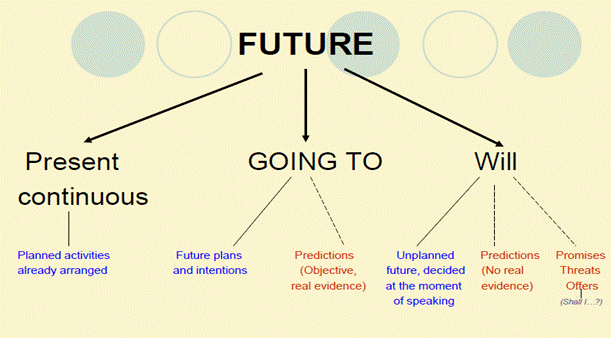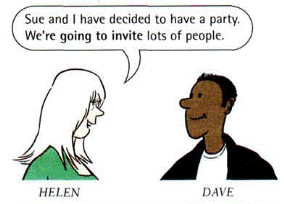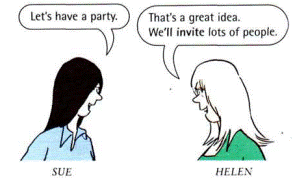 |
Главная Случайная страница Контакты | Мы поможем в написании вашей работы! | |
Going to vs. Future Simple
|
|

Simple Future has two different forms in English: "will" and "be going to." Although the two forms can sometimes be used interchangeably, they often express two very different meanings. These different meanings might seem too abstract at first, but with time and practice, the differences will become clear. Both "will" and "be going to" refer to a specific time in the future.

| Going to | Future Simple (will) |
1 to describe an action intended to be performed in the near future
 · He’s going to take a few days off next week.
· We’re going to buy a new house next summer
2 to make a prediction based on evidence
· Look at the baby! He’s going to et that worm!
· He’s going to take a few days off next week.
· We’re going to buy a new house next summer
2 to make a prediction based on evidence
· Look at the baby! He’s going to et that worm!
| 1 to express spontaneous decisions
 · A: I'm so tired. I'm about to fall asleep. B: I'll get you some coffee.
2 to express a voluntary action, requests, offers, promises, threats, etc.
· I will send you the information when I get it.
· Will you help me move this heavy table?
· I will not do your homework for you.
3 to make predictions about the future
· John Smith will be the next President.
· A: I'm so tired. I'm about to fall asleep. B: I'll get you some coffee.
2 to express a voluntary action, requests, offers, promises, threats, etc.
· I will send you the information when I get it.
· Will you help me move this heavy table?
· I will not do your homework for you.
3 to make predictions about the future
· John Smith will be the next President.
|
3 Future Continuous / Future Perfect / Future Perfect Continuous
These people are standing in queue to get into the cinema.

Half an hour from now the cinema will be full. Everybody will be watching a film.

An hour from now the cinema will be still full. Everybody will have been watching a film for half an hour.
Three hours from now the cinema will be empty. The film will have finished. Everybody has gone home.

 (+)
(+)
(?)
(-)
|
(+)
(?)
(-)
|
(+)
(?)
(-)
| |||||||||||||||||||||||||||||||||||||||
| 1 Specific time in the future At midnight tonight, we will still be driving through the desert. 2 Parallel Actions in the Future Tonight, they will be eating dinner, discussing their plans, and having a good time. | 1 Completed Action before Something in the Future By next November, I will have received my promotion. 2 Duration before Something in the Future (Non-Continuous Verbs) I will have been in London for six months by the time I leave. | 1 Duration before Something in the Future They will have been talking for over an hour by the time Thomas arrives. |
Дата публикования: 2015-10-09; Прочитано: 2106 | Нарушение авторского права страницы | Мы поможем в написании вашей работы!


